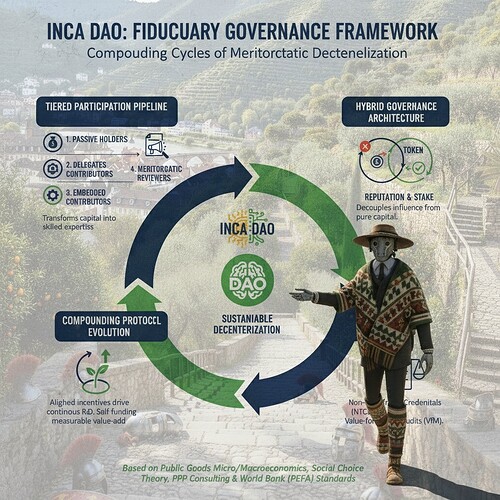Rarible stands at a crucial juncture, where its governance evolution, tokenomics design, and ecosystem sustainability demand a grounded, relational view. Beyond a static set of features, Rarible behaves as an interwoven living organism shaped by community action and economic forces.
The executive brief distills the current realities for the Rarible ecosystem, as understood broadly in public documentation.
Evolving Governance: The Shift from Modality to Agility
Rarible’s governance journey is defined by significant recalibrations. The winding down of mechanisms like veRARI and the initial Mainnet DAO marks a phase where authority migrates to the RARI Chain, a move symbolizing a shift toward a multichain governance designed to embed scalability and broader participation.
- The Bureaucracy Paradox: This technical advancement surfaces the age-old tension between decentralizing power and ensuring accountability.
Debates within the DAO’s Security Council expose a friction where professional delegates offer legal and operational stability but raise concerns about diluting the community voice. Conversely, grassroots contributors could amplify participation but face risks of personal liability and consensus fragmentation.
- Balancing the Poles: Rarible’s challenge is to find nuanced structures segmented by legal protections and compliance, echoing governance best practices observed in parallel DAOs. Resilience is built not just on code, but on a collective legal strategy that embraces distributed stewardship.
Rarinomics sustainability: alignment of priorities with competing incentives
The RARI tokenomics reflects an attempt at controlling scarcity. However, the pausing of weekly airdrops after detected abuses revealed economic growing pains where incentives are misaligned with community health, causing strategic setbacks.
-
Fiscal Prudence vs. Ambition: The current budget, which ramps up funding for salaries, marketing, security audits, and professional services, forecast optimism but encounters valid skepticism around scalability and financial efficiency. Treasury diversification and the Community Strategic Growth Fund signal strategic alignment with sustainability goals, yet these remain experiments vulnerable to market volatility and execution risk.
-
Incentive Refinement: The revamped Delegate Incentive Program seeks to simplify contributor compensation and promote merit-based participation by adopting fixed rewards per activity. This aims to align individual contribution with collective security, reinforcing the sensitivity required in designing sustainable incentive systems.
Relational Tensions: Concentration, Trust, and Engagement
Validator and stakeholder decentralization tells another chapter of Rarible’s story, one rooted in relational dynamics.
-
Centralization Paradox: Though the multichain architecture enhances resiliency, voting power oligopolies among major organizations and long-standing delegates highlight governance fragilities. These concentrations offer short-term stability at the peril of systemic centralization. The challenge is inherent to most decentralized ecosystems striving for expansion.
-
The Chilling Effect: The specter of personal legal exposure for community delegates could discourage grassroots participation. Dependence on select professional entities for legal safeguarding surfaces a pragmatic necessity but also a social tension confronting trustless ideals vs centralized intermediation.
The Community Pulse: Behavioral dimensions underscore governance’s relational fabric.
Proposals invoking collective responsibility, transparent reporting, and sustainable financial stewardship resonate consistently, indicating a cultural appetite for reciprocity and mutual care as foundational norms. However, voter turnout volatility and delegate turnover spotlight perennial challenges in sustaining inclusive governance distributions.
Conclusion: The invitation to Community Stewardship
Ultimately, Rarible’s evolving ecosystem exemplifies the dialectic between innovation and institutionalization.
Viewing governance and tokenomics as intertwined processes embedded within a relational community reframes success metrics beyond short-term transactions or vote counts. It demands an ongoing, shared commitment to accountability, adaptability, and equity to embrace distributed stewardship.
For RARI token holders, delegates, and stakeholders, the decision hinges not merely on technical upgrades or token allocations, but on cultivating a culture where diverse voices converge into a resilient quorum, where economic incentives harmonize with the community welfare. This ongoing relational dynamic requires sharp scrutiny, robust debate, and consistent clarity to advance a sustainable DAO.
